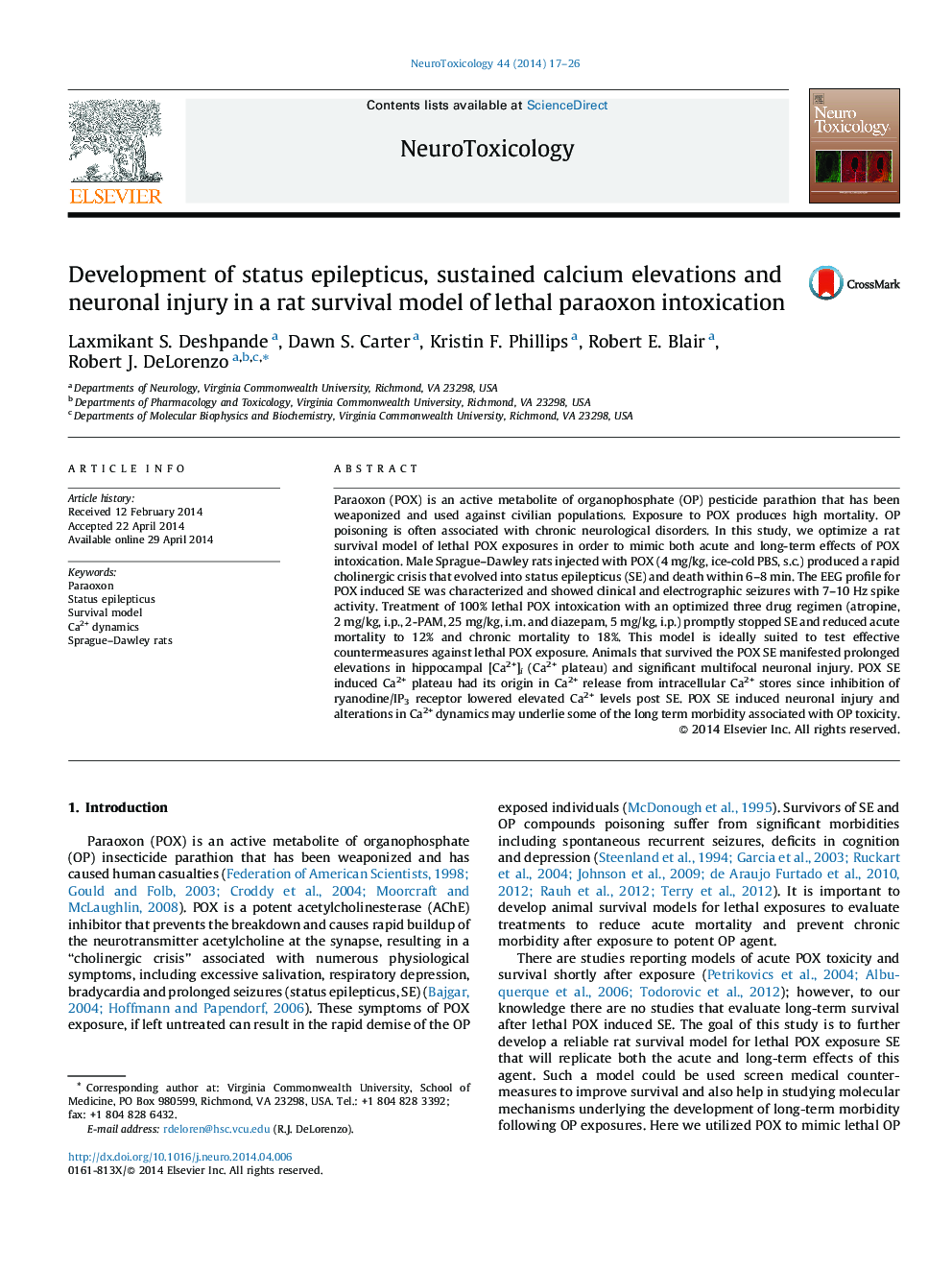| Article ID | Journal | Published Year | Pages | File Type |
|---|---|---|---|---|
| 2589655 | NeuroToxicology | 2014 | 10 Pages |
•We have optimized a rat survival model of lethal paraoxon intoxication.•Lethal paraoxon toxicity survivors manifested neuronal Ca2+ plateau and brain injury.•Drugs targeting intracellular Ca2+ release abolished neuronal Ca2+ plateau.•This model is ideal to test countermeasures against lethal paraoxon exposure.•This model may help to study acute and chronic effects of organophosphate toxicity.
Paraoxon (POX) is an active metabolite of organophosphate (OP) pesticide parathion that has been weaponized and used against civilian populations. Exposure to POX produces high mortality. OP poisoning is often associated with chronic neurological disorders. In this study, we optimize a rat survival model of lethal POX exposures in order to mimic both acute and long-term effects of POX intoxication. Male Sprague–Dawley rats injected with POX (4 mg/kg, ice-cold PBS, s.c.) produced a rapid cholinergic crisis that evolved into status epilepticus (SE) and death within 6–8 min. The EEG profile for POX induced SE was characterized and showed clinical and electrographic seizures with 7–10 Hz spike activity. Treatment of 100% lethal POX intoxication with an optimized three drug regimen (atropine, 2 mg/kg, i.p., 2-PAM, 25 mg/kg, i.m. and diazepam, 5 mg/kg, i.p.) promptly stopped SE and reduced acute mortality to 12% and chronic mortality to 18%. This model is ideally suited to test effective countermeasures against lethal POX exposure. Animals that survived the POX SE manifested prolonged elevations in hippocampal [Ca2+]i (Ca2+ plateau) and significant multifocal neuronal injury. POX SE induced Ca2+ plateau had its origin in Ca2+ release from intracellular Ca2+ stores since inhibition of ryanodine/IP3 receptor lowered elevated Ca2+ levels post SE. POX SE induced neuronal injury and alterations in Ca2+ dynamics may underlie some of the long term morbidity associated with OP toxicity.
